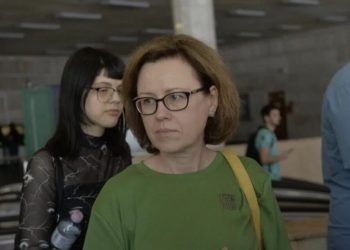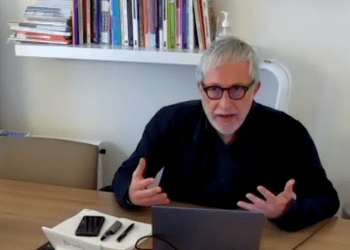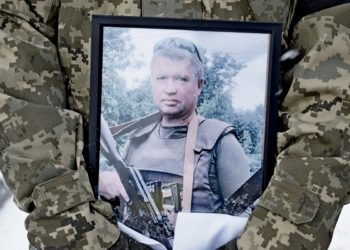A native of St. Petersburg, Alexander Malkevich has been taking control of audiovisual propaganda in the occupied territories of Ukraine since July 2022.
This is said in the investigation called The Malkevich Propaganda Machine, The Wagner-Allied Network In Ukraine prepared by Reporters Without Borders.
The projects of local TV channels, which the occupation administrations developed after the invasion, were suddenly canceled in favor of a new system articulated around three media: the Melitopol media group ZaMedia, the Kherson TV channel Tavria TV, and the Mariupol channel Mariupol 24.
For many years, Malkevich has been a member of the circle of people close to Yevgeny Prigozhin, the head of the mercenaries of the so-called private military company Wagner.
According to the text of the investigation, even if, immediately after Russian troops’ occupation of Ukrainian cities, residents were “fed” programs of federal state television, local media played an essential role in ensuring the credibility of the propaganda discourse. The task of these new media was to force the local population to accept the Kremlin’s vision of the world and the integration of the occupied territories into Russia, which, according to Alexander Malkevich, was a “significant challenge.”
To launch these media, Alexander Malkevich relied on the resources of the local administration, as well as a fund with unknown funding, which he created in 2017 and renamed the New Media Development Fund in October 2022, and the Sankt-Peterburg channel managed by him.
The management of the new local channels was entrusted to Russian journalists known for their loyalty to the Kremlin or to members of the St. Petersburg branch of the Fighting Brotherhood, an association that supports patriotic education and Russian fighters and is part of Wagner’s recruitment network.
However, Malkevich‘s enterprise is hindered by a lack of human resources. There are few Ukrainian journalists left in the occupied territories ready to cooperate with his propaganda media, despite the generous remuneration for their work, which makes, according to Reporters Without Borders sources, RUB 30,000 (EUR 350) per month in the destroyed Mariupol. To remedy this, he is recruiting Russian personnel, particularly from his native St. Petersburg, and betting on attractive salaries.
Alexander Malkevich also recruited officials and managers of propaganda media who worked for the self-proclaimed Donetsk People’s Republic (DPR) in eastern Ukraine. However, this reinforcement was insufficient to compensate for the lack of local specialists. That is why Alexander Malkevich started an express recruitment campaign on the spot. On August 10, he opened a school of journalism in Kherson with the support of the general director of RT Aleksey Nikolov. However, it was opened not for personnel training but for their recruitment. Recruits, often 15-16-year-old people, sometimes go to St. Petersburg for internships.
The propaganda system created by Alexander Malkevich in the occupied territories of Southern Ukraine is part of Yevgeny Prigozhin‘s strategy aimed at strengthening his media influence in Russia. Before last fall, Malkevich denied his involvement in this private military company and sued journalists who discovered this connection. Today, he is on the front lines with his “soldiers” and confirms his ambitions to control information flows in an ongoing war.
In Russia itself, Alexander Malkevich is at the forefront of the fight against independent media and so-called “foreign agents.” Like his mentor Yevgeny Prigozhin, he uses his activities in Ukraine to expose the “traitors” of the country. Among them are primarily artists, leaders of non-governmental organizations, and journalists, who, in his opinion, should be “banned.”

 THE NATIONAL UNION OF
JOURNALISTS OF UKRAINE
THE NATIONAL UNION OF
JOURNALISTS OF UKRAINE
















Discussion about this post